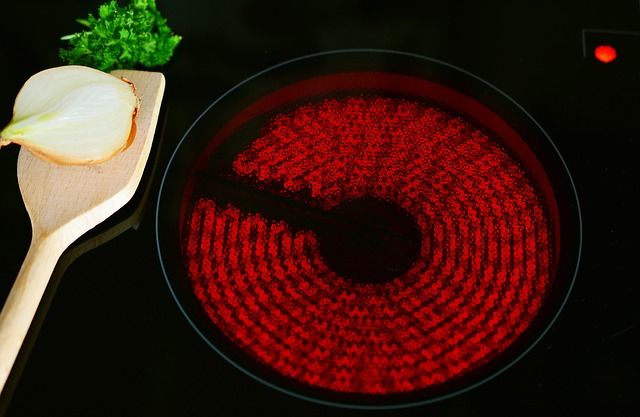Gas vs Electric Stove : Which one is best?
Whether you are renovating your home, building a new one or just think it may be time for an upgrade, the choice between an electric stove and gas stove can be a tricky one. With so many styles, types and sizes available, it can be an overwhelming experience trying to choose just one. And, as it is a decent investment and a major part of your kitchen, you want to ensure you pick the best one for you!
To make things a little easier for you, we have put together some pros and cons for both kinds of stoves. Each have some negatives and positives to consider, so make sure you complete your research properly so you can choose the best type for your needs. And, if you have any further questions, give the licensed gas fitters at Pure Plumbing a call on 0407 837 729.
Gas Stove
The first option to consider is a gas stove. Gas stoves can be run on natural gas (which is supplied through a grid system like electricity) or LPG (Liquefied Petroleum Gas), which is supplied in a gas bottle. Always remember, if your gas stove is to be wired into mains connections it must be installed by a licensed gas fitter.

Pros
There are quite a few benefits when it comes to gas stoves, including :
- Instant heat - A gas stove means you’ll get an instant, constant flame that you can adjust based on what you can see. This has the added bonus of not having to wonder whether the stove is on, off or on the right setting
- Cooking - A gas stove offers a more even cooking arrangement, and food also generally cooks quicker. If you love to cook (but not bake), then a gas stove is the better choice
- Cost - If your home is already connected to gas and other appliances are using it, gas stoves can be very inexpensive to run. As long as your system has an electronic ignition (as opposed to a pilot light) a gas stove can cost you less than half as much to operate than an electric stove
- Appearance - If you are after a rustic look, gas stoves are the best option
- Power outages - A gas stove is still able to be used in a power outage (as long as you have a match)
- Cookware - Cookware of lesser quality isn’t such a problem on gas stoves, as it is for their electric counterparts
- Energy Efficiency - It takes around three times as much energy to produce and deliver electricity to your stove than gas to your stove
- Sustainability - Gas is a greener, renewable energy source that is better for the environment
Also, when you think about it, gas stoves are always the option that the experts use in cooking shows!
According to the Namoi Council in NSW, when addressing whether it is more efficient to boil water in an electric kettle or on a gas stove top kettle they advised, “In Australia, heating water using gas is at least three times more efficient and produces as much as five times less carbon emissions than using electric means”.
Cons
Just like everything, gas stoves also have a few disadvantages. These include :
- Safety - Gas stoves are generally considered less safe than electric ones (but, in reality, electric stoves are just as unsafe, if not more!)
- Cost - When it comes to gas stoves, their cost is both a good and bad thing. They are expensive to buy and to set-up, especially if you don’t already have gas lines connected to your kitchen (never complete complete gas works yourself, always employ a registered gas fitter)
- Release of gas - If the burner doesn’t start straight away, then gas is still being released into the air. This is a big problem if the burner remains on, but doesn’t light
- Cleaning - It can be tricky to clean up spills from the top of a gas nozzle sometimes!
- Gas lines - Not all homes and apartments are able to have gas lines installed in their homes
IN NEED OF ADVICE FOR GAS VS ELECTRIC STOVE?
Get professional help, book a great Sydney gas fitter here
Electric Stove
The second option is an electric stove. Again, if your stove is to be wired into the mains connection, employ a professional and do not do it yourself!

Pros
Electric stoves are very common and have various advantages, including :
- Cleaning - Electric stoves these days generally have a cooktop that is easily cleaned, such as glass or other smooth surfaces. Even if they have coil burners, these aren’t too tricky either (but may be a little time consuming)
- Appearance - If a sleek look is what you are after, an electric stove ticks all the boxes
- Cost - Electric stoves are cheaper to purchase and install than their gas counterparts
- Operate - Electric stoves are usually quite easy to operate
- Cooking - Electric stoves are offer a stable cooking surface for pots, pans and other cooking devices. Also, simmering is a lot better on electric stoves than gas
- Storage - Electric stoves have additional storage space under them, whereas gas stoves do not
Cons
And now for the downside of an electric stove :
- Cooking - Electric stoves cook food slower than gas stoves and can take a long time to heat up and cool down. They also offer more uneven cooking than gas options
- Appearance - The smooth top surface of electric stoves stain easily, with spills such as sugar near-on impossible to get off once it heats up
- Power outages - If your area is subject to power outages on a regular basis, you won’t be able to use your electric stove during these times. If you are thinking you will use a back-up generator to power it during a blackout, some generators won’t be able to handle the amount of electricity needed by your electric stove to work (and it will be more costly than a gas stove)
- Cookware - Electric stoves with smooth tops may only have quality cookware on them, and no cast iron! (Cast iron can be used on electric coils, but it isn’t recommended)
- Cost - If your kitchen is set up for a gas stove, not an electric one, having the appropriate wiring put in by a registered electrician can be expensive
- Energy Cost - A gas stove will cost you less than half as much to operate than an electric stove (if the gas stove has an electronic ignition)
- Safety : Unlike a gas oven, an electric stove can appear off but it is actually on (and very hot). If you aren’t used to electric ovens, it can be a learning curve to remember to turn everything off
- Energy Efficiency - It takes around three times as much energy to produce and deliver electricity to your stove than gas to your stove
Final verdict : Gas or electric stove?
As can be seen from above, there are pros and cons either way you choose. Some people have a preference due to past experiences or the way they like to use their stove, whereas others prefer to stick to a specific budget when it comes to the purchase and installation of system.
Take a look at your lifestyle, how you like to cook, can you connect to gas in your home and your budget, among other things. If you are a foodie who is looking at the long term cost of things and wants something that is more energy efficient and environmentally friendly, a gas stove is what you should be looking at. If you are more worried about the short-term financial cost and want something a little sleeker and easier-to-use, an electric option may be more appropriate. In short, it really is up to you!

Your reliable Sydney gas plumbers
If you have any further questions regarding gas vs electric stoves, or are searching for a gas plumber in Sydney, give us a call on 0407 837 729 or complete an online job booking form now. We are specialists when it comes to offering unique services that encompass gas work, gas leak detection, repairs, and installation in your home and workplace, so get in contact today!
Resources :
Real Estate.com.au (Gas vs Electricity) : https://www.realestate.com.au/advice/gas-versus-electricity-choosing-an-energy-source/
Red Energy (Gas or Electric Oven?) : https://www.redenergy.com.au/living-energy/appliances/gas-or-electric-oven-find-out-which-is-best
How Stuff Works (Gas vs Electric Stove) : https://home.howstuffworks.com/gas-vs-electric-stoves.htm
Everyday Health (Gas vs Electric Stove: Which Do You Need?) : https://www.everydayhealth.com/healthy-living/healthy-home/gas-vs-electric-stove-which-you-need/
